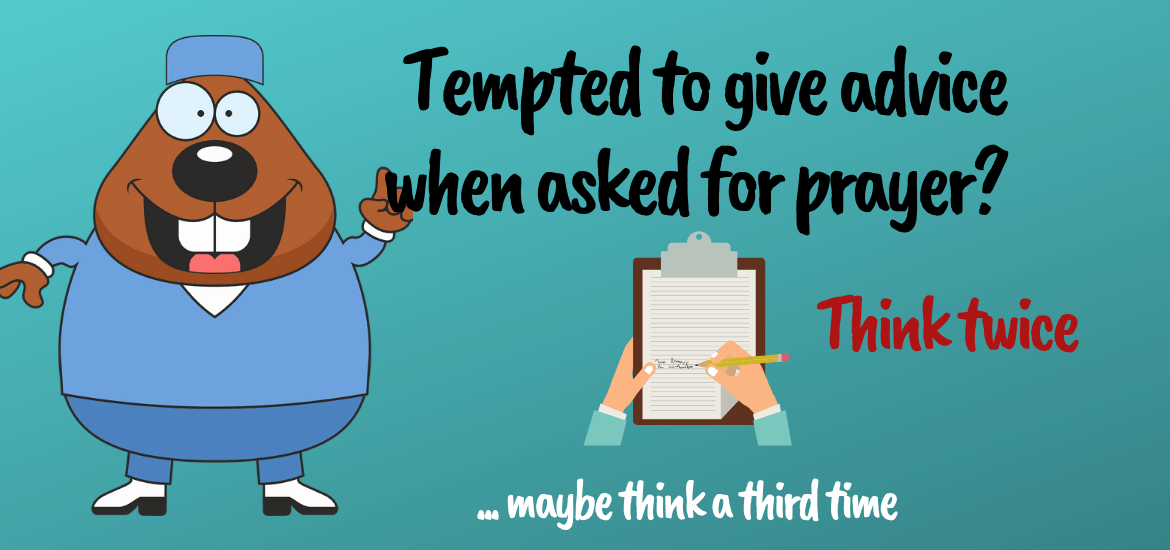Imagine asking your friend for her specialist’s phone number, knowing that she had received excellent care by that specialist. Now imagine calling that number to book an appointment and recognising your friend’s voice on the other end of the call. Thinking it a bit strange, you still shrug it off; maybe she has a new job as a receptionist. You repeat your request for an appointment with the specialist. She counters by offering medical advice over the phone. You thank her but politely insist that you wish to be seen by the doctor.
Now imagine waiting for the doctor in an examining room a few weeks later, and there is a familiar knock on the door. Your friend marches in, wearing a white coat and stethoscope. She demands you give her all your personal medical information. When you protest that she is not a doctor, she pronounces you to be a difficult patient and hastily hands you a prescription. Refusing to take her medicine, you demand to speak to the specialist. She leaves in a huff. As she slams the examining room door, your friend shoots back a passive-aggressive, snarky comment. “Good luck! I hope that you feel better soon.”
After waiting an hour in the examining room, you realise your so-called friend ignored your request to consult with the specialist, and you leave the clinic, in a huff of your own. Some specialist! Some friend!
“They asked for prayer; they didn’t ask for my advice.”
So often, we respond to prayer requests in the same manner as the misguided friend in the above scenario. We offer unsolicited advice. More times than not, we are unqualified to offer that advice. We presume that we have the same diagnostic skills as the Divine Specialist. We give a treatment plan that is solely based on our finite wisdom. Most times, our off-the-cuff advice does more harm than good. Not only do we fail to bring their situation to the only one qualified to bring resolution to their problem, but we also become a stumbling block to the person asking for prayer.
The two reasons why I try NOT to give advice when someone asks for prayer.
1. They didn’t ask for information; they asked for prayer.
2. They asked for prayer; they didn’t ask for information.
Seriously though, it seems to me that a person requesting prayer is deluged with way more advice than offers to pray these days. Much of that advice is contradictory. Earthly wisdom is dispensed in little bottles labelled with dire warnings. “You should, you shouldn’t, you must, you must not.”
Anecdotal information is tagged on to such ‘not-so-helpful and unsolicited advice. “My Aunt Zelda swears by Vitamin A213.” “I happen to be selling a cream that can fix that problem right up.” “You need more exercise” “You need more rest.” “You should leave that creep.” “You should submit to your husband.” “Tough love is the answer.” “Boys will be boys.” “Have you thought of….?”
Those on the receiving end of such advice are less apt to ask for prayer again. That’s unfortunate. Prayer is precisely what they need. Prayer is more powerful than any earthly advice we might have to offer, especially if that advice is based upon limited details provided in a prayer request on Social Media. Even if the prayer request is quite detailed, our finite minds still cannot grasp the full scope of their problem.
Upon receiving a prayer request, my first thought is to try to make things better for that person. Naturally, I don’t want my friends and family to suffer needlessly. Many times, I think I might have helpful advice. Sometimes, I have a strong sense that I have the answer to their situation. On rare occasions, I feel that the answer is right from God. However, I have learned through bitter experience to fight back that immediate urge to try to fix things. Timing is everything.
I have learned to pray first. Then, and only then, and if I still feel an irresistible urge to share advice, I gently ask if they are open to information. I do so in humility, and I patiently wait for an answer. If the answer is no, I accept that answer. I continue to pray, making sure I am not trying to convince God to make that person listen to me. I also remind myself that God doesn’t need me to be His consult. He is more than capable of sorting things out by himself. I then remind myself of my first point. They asked for my prayers, and they did not ask for my advice.
Personal Application
Let go of your need to be right. It could be your right is wrong in your friend’s situation, even though it might be right in 99.9% of cases. Let God figure it all out; he’s good at that. After all, He has infinite patience with us; God knows us inside and out.
Don’t forget to join me on YouTube. It costs nothing to subscribe to my channel, and it is simple to do. Click on the red subscribe button, then on the bell that appears. That easy! You will receive a notification every time I post a new video. I am posting daily short devotional messages there as well as random thoughts and casual “What’s up, Katherine?” segments.
Follow me on Facebook. You do not need to send me a friend request to follow me. However, I welcome friend requests if you message me first to say you know me from the website or email list! Here is the Facebook link.
If you are coming here from Facebook, you might not be aware that you can receive these weekly devotions via email. Sometimes, Facebook doesn’t show my links to these devotionals, and so you might not see when I post something new. How to fix that? Sign up for my weekly email that not only includes a devotional but also seven quotes from prominent authors, speakers, and heroes of our faith. I do not use this mailing list for any other purpose!
All Bible verses attributed to the ESV version unless otherwise indicated.
Until Next Week,
©2019 Katherine Walden
Sign up to receive a weekly emailed devotional by Katherine by using the following form.

